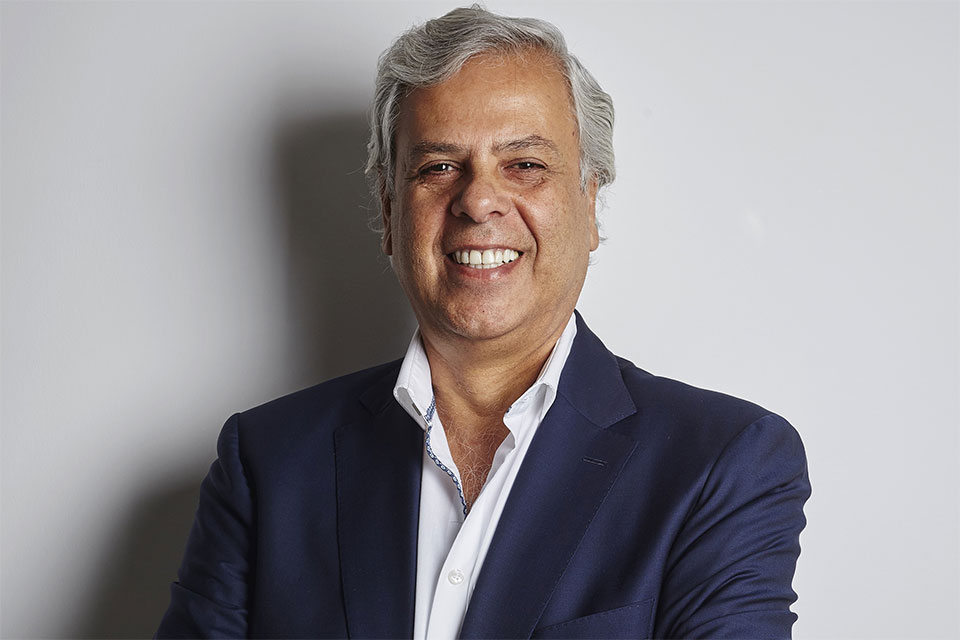8 Secrets for Bouncing Back From Failure

Failure is typically very difficult for people to accept. Our human nature strives to thrive, to succeed, to achieve. When people fail, they’re not their best selves.
In fact, they are typically at their lowest point—they feel incompetent, inadequate, and consider abandoning their goals. Because of this, very few people like to talk about their experiences with or brag about their failure. However, acknowledging failure is the only way to assess what went wrong, what can improve, and how to do better.
Over the years I have had to reflect on my own failures and mistakes, and I have made plenty of them. As a result, I have gathered eight ways to bounce back from failure that I use as a guide, and I encourage others to use them as well.
- Join the Dots
Being an entrepreneur is about bridging things together, making connections between ideas, people, and places. But connecting the dots is only possible through observation. You must observe the existing problem, understand how to make the best of the environment, and bring ideas together that work to provide a solution.
I have always known that I wanted to be an entrepreneur because, since the beginning, I wanted to make connections, build bridges between things, and provide results. The first business I started was selling computers. I was connecting people to technology, giving them the opportunity to purchase computers. Then, as I grew in my business, I began working in the banking industry. I managed to help countries in the Middle East have financial inclusion, connecting them to the rest of the world. - Don’t Be Afraid to Make Mistakes
Failure is not an option, but mistakes are very important. If you don’t make mistakes, then you are not taking any risk at all; you aren’t pushing the boundaries or being ingenious. You won’t achieve or be a great success if you are avoiding making mistakes.
Being unafraid of making mistakes shows that you’re a risk taker, that you are willing to imagine the unimaginable. You are willing to get something new or to get a new result out of this experience.
There is a delicacy necessary when making mistakes, however. The distinction between mistakes making you a failure versus a great success is in never making the same mistake twice. Those who never repeat the same mistakes are able to bounce back from failure in a way that demonstrates understanding and determination. - Be Positive
If you are constantly looking at things negatively, then you are only considering what did not work, what went wrong, and where you fell short. Negative thinking fools you into believing that you are incapable of succeeding. You are missing the possibilities that positivity brings.
When you are a positive person and have motivation, when you believe that you can achieve, you are capable of rebuilding yourself after failure. Keeping your thoughts positive allows you to consider your failings, while looking ahead to what else is possible. People fail all the time, but the ones who are persistent, persevere, and remain positive are the ones who will succeed. - Seek Advice from Trusted Advisors
Parents are naturally the first advisors in our lives. Eventually, however, our thoughts and beliefs begin to differ from them, because, as children, we are put in a different environment from what they experienced, giving us a disparate world-view and life experiences.
But we continue to carry their values with us. Then, as life proceeds, there are certain advisors that either you connect with through work or particular relationships. At work, a senior advisor may become your mentor because they take care of you—they take you by hand and help you grow in your field. They become your lighthouse, something like a cornerstone.
At the end of the day, regardless of how smart you are or how competent you think you are, you need somebody to bounce your ideas off of. You need a sounding board. You need to pick somebody’s brain. - Be Dynamic
When I was younger, I was put into a metaphorical corner. I had moved to a new country with hardly a dollar to my name, I didn’t speak the language, and I had no one I could lean on for support. I had to make a choice in that moment: do I become dynamic and evolve, or do I die in that corner? I decided to be dynamic, and I now have a multi-billion dollar company.
Being dynamic means being on the move, all the time. I’m constantly on wheels, traveling from one place to the other, geographically and metaphorically. Because I embraced dynamism early in my life, I learned new languages and grew my network across countries, I accepted bankruptcy in the beginning of my life, and my company has expanded from selling computers to selling software in hundreds of banks across the world.
I could have been just another number or any ordinary person, but I chose to be dynamic and continued moving, always looking for opportunities, and always leaving room to grow. - Develop a Panoptic View
The word “panoptic” means being able to see everything, the entire view, from a stationary perspective. While it’s important to be laser focused, for you to have a particular area of expertise in which you are proficient, it’s also very important to maintain a panoptic view.
When you adopt this perspective, you are able to see the changes that are taking place around you, what things are happening outside of your direct focus, and prevent unexpected failures or roadblocks.
It’s like driving a car. If you only ever look straight ahead, never looking in your side mirrors, you may get into an accident because you are not aware of what is happening around you. But with a panoptic vision, you can see straight, you can see right, you can see left. You are prepared to avoid potential risks and problems. - Be Diverse
The desire to achieve the highest result should not have a high cost—it should have a certain cost. This is where the balance between efficiency and effectiveness in diversity in business is very important. Achieving this balance requires you to understand what’s going on:
# Is there a problem your customers have that there is currently no solution for?
# Is your company capable of diversifying its product or service to provide that solution without diluting its expertise or scope?
Being diverse in what your business offers allows you to adapt to what is needed, to be the solution your customers are in search of, and to rise up from the metaphorical ashes of failure with a new plan to adapt and expand. - Believe in Yourself
It’s extraordinarily important to believe in your capabilities—you have learned so much, you have earned so much, you have worked so hard. If you want to bounce back from failure, you must believe that you can, and you will. When you believe in yourself, when you know that you can achieve your goals, there is no other possible outcome but for you to do just that.
You can increase your belief in yourself by giving yourself opportunities for you to succeed. Have small, attainable targets that gradually move you toward your ultimate goal. Not only will this build your belief in yourself, but it will encourage you to keep your positive attitude.
We Will Fail
Learning from failures should be the top priority for anybody who wants to succeed in life. When you learn from your mistakes, if you know how to improve yourself and enhance your possibilities, you can move your business and opportunities forward.
Failing is the only way we can fully understand what it takes to be successful, how to proceed, and how to progress. The people who think from a holistic view, that failing is integral to our growth process, find themselves not only working through failures, but welcoming them as opportunities for improved success. We will continue to make mistakes; we will fail. Therefore it is imperative for us to learn from them, better ourselves, and avoid making the same errors twice.
For more advice on how to learn from failure and find success, you can find Two Brown Envelopes on Amazon.
Have you read?
# Best CEOs In the World Of 2022.
# TOP Citizenship by Investment Programs, 2022.
# Top Residence by Investment Programs, 2022.
# Global Passport Ranking, 2022.
# The World’s Richest People (Top 100 Billionaires, 2022).
Bring the best of the CEOWORLD magazine's global journalism to audiences in the United States and around the world. - Add CEOWORLD magazine to your Google News feed.
Follow CEOWORLD magazine headlines on: Google News, LinkedIn, Twitter, and Facebook.
Copyright 2025 The CEOWORLD magazine. All rights reserved. This material (and any extract from it) must not be copied, redistributed or placed on any website, without CEOWORLD magazine' prior written consent. For media queries, please contact: info@ceoworld.biz








